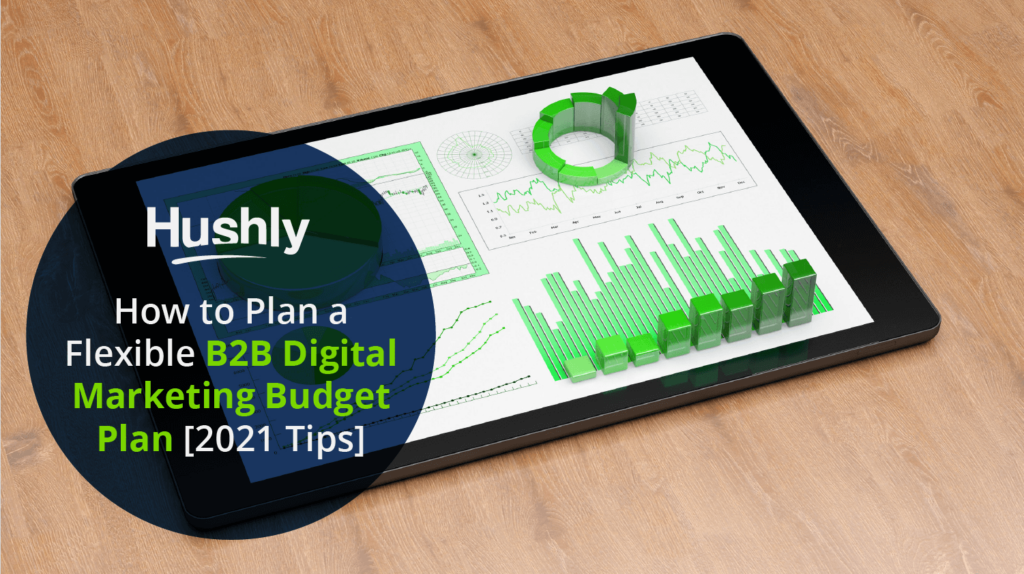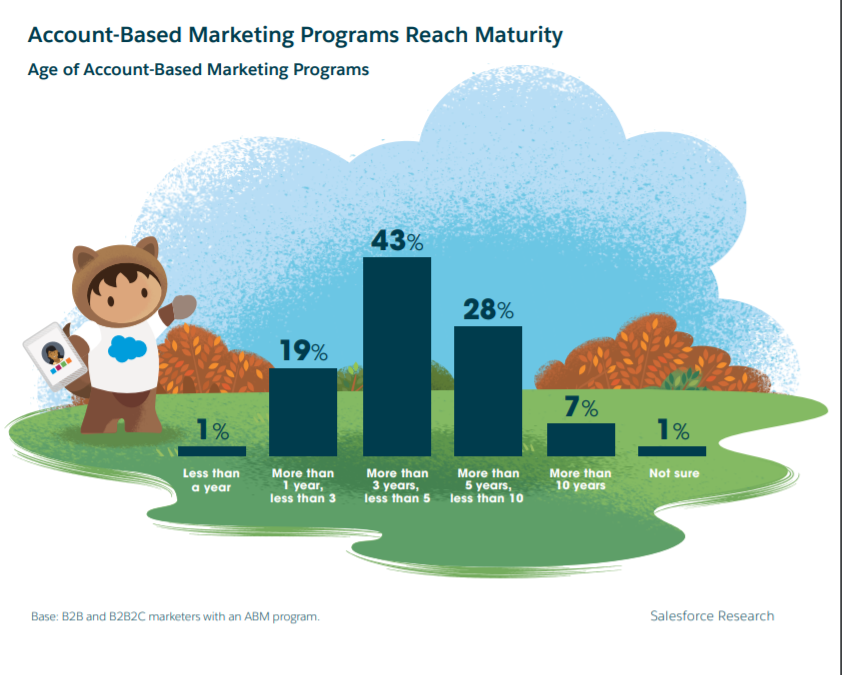B2B marketing budgets are extremely fluid and uncertain right now.
In response to the pandemic’s changes, 30% of marketers report no change to their overall budget. Meanwhile, others have noticed a drop and some say their budgets have increased.
Unsurprisingly, 63% say the pandemic made marketing initiatives more important.
Marketing budgets seem dynamic right now because companies aren’t sure what to trim without sacrificing results.
That’s why today, we’ll break down the general shifts in B2B marketing budget plans while covering a few routes to trim your budget and maximize results.

What’s Changed in Typical Marketing Budget Plans?
For starters, most B2B marketers have realized that annual budgets aren’t ideal anymore.
Digital marketing has wildly changed how marketing campaigns operate, compared to TV and print, yet budget planning hasn’t changed. Sure, we’ve changed where we devote our budgets. But we haven’t changed how often we evaluate the results of our budget and adjust where the funds go.
Marketers and stakeholders should adjust marketing budget plans on a quarterly basis, if possible.
Likewise, quarterly budgets give marketers more room to experiment with different campaign ideas without committing to anything long-term. If something radical doesn’t work, you can adjust the budget after three months and move the portion elsewhere.
Marketers should also devote more budget to improving the experience for existing customers. Customer service experience provides a perfect leeway into account-based marketing. Just identify your key existing accounts, look for personalized ways to engage them, track the results, and expand.
Plus, you’ll be set up for improved customer loyalty as you earn new leads.
How to Create Your B2B Marketing Budget Plan for 2021
Most marketing teams can stand to trim their budget without sacrificing results or jobs. The right tools and optimization can free up funds from redundancies while making everyone’s experience a little better.
Audit Your Martech for Efficiency and Budget
Before slashing budget allocation from tactics you know work well, audit your existing martech stack. Most B2Bs run bloated martech stacks full of tools they barely use yet spend a fortune on each year.
Evaluate how much you’re spending in total on martech. Look for overlapping features among tools you barely use. Go for all-in-one tools with a range of features that have fast learning curves so everyone on the team can use them ASAP.
Factor Hybrid Events into Your Marketing Budget Plan
Hybrid event strategies should be in everyone’s B2B marketing budget plan for 2021. Love them or hate them, the benefits of virtual events are real, and in-person-only events won’t be the way of the future.
You should assume that your competition will be optimizing their hybrid events over the next year. Set aside budget for research and testing. Give yourself room to try new event niches and figure out what type of events work for your brand.
Include Marketing Budget Allocation for User Experience
Google will start looking at core web vitals and overall user experience this year as it evaluates search rankings. First, it was all about mobile but today, it’s all about user experience.
Unsurprisingly, marketers say about 10% of their overall marketing budget plan will go straight to user experience these days.
If you haven’t yet, start with your content experience. AI tools make it easy to personalize your content with similar algorithms that Netflix and Spotify use. Each visitor gets personalized content recommendations based on their behavior, vertical, account, or stage of the buyer’s journey.
Look for Marketing Processes to Automate
Look for areas you can trim up marketing and sales inefficiencies with automation – like lead scoring, analytics, lead vetting. You’ll be set up to maximize your budget and labor power.
AI tools are remarkably effective when you add machine learning into the mix. Plus, they can finish analytics tasks much faster and more effectively than humans ever could.
Your marketing team can focus more on growth-related tasks instead of spinning their wheels with inefficient processes.
Consider Lean and Scalable Account-Based Marketing
92% of B2B marketers say they’re running some kind of account-based marketing strategy today. These strategies are young too, under five years for most companies.

ABM works because it’s flexible and scalable. You have several options for adjusting your marketing budget plan and tactics based on which accounts you need to target at any point in time.
Plus, ABM fits with the important trend of improving customer loyalty by engaging the accounts you already have with ABM tactics. The right AI-powered tools can make personalized ABM a breeze.
Evaluate Your Content Marketing Strategy
Only 12% of B2Bs said they planned to decrease their content marketing budgets in 2021. This is good news because content is such a vital part of every successful marketing strategy today.
Your key accounts, leads, and customers need engaging and, most importantly, useful content every step of the way.
Instead of trimming your content marketing budget, audit it for results. Most B2Bs could stand to publish a little less frequently and instead focus on quality and thoroughness. Make sure you’re only publishing content within your expertise – don’t try to be an expert in everything.
Audit Your PPC Costs and Results
Pay-per-click ads like Google’s take up massive portions of most brand’s marketing budget plans. While PPC certainly can serve a purpose, it can also create a huge money pit.
Start with an audit of your search query history through Google Ads. This will tell you exactly which search terms you’re paying for and what you’re spending each month. You might be surprised.
Most brands can trim hundreds, or even thousands, from their budget each month just by setting a strict PPC keyword plan and adding some negative keywords to tell Google what you don’t want to rank for.
Choose the Right Martech to Stretch Your Marketing Budget Allocation
Martech can either be the most cost-effective element of your marketing budget plan or the biggest leech. Most B2Bs spend far more than they need on martech with overlapping features they never use.
An all-in-one AI-powered tool can help you streamline your marketing budget with scalable features for content personalization, account-based marketing, lead nurturing, lead vetting, and more.
Make sure everyone is trained on a tool’s full range of features as well so they’re prepared to use its full capabilities and reap the best ROI.
Learn why so many companies choose Hushly for their all-in-one content experience tool.

